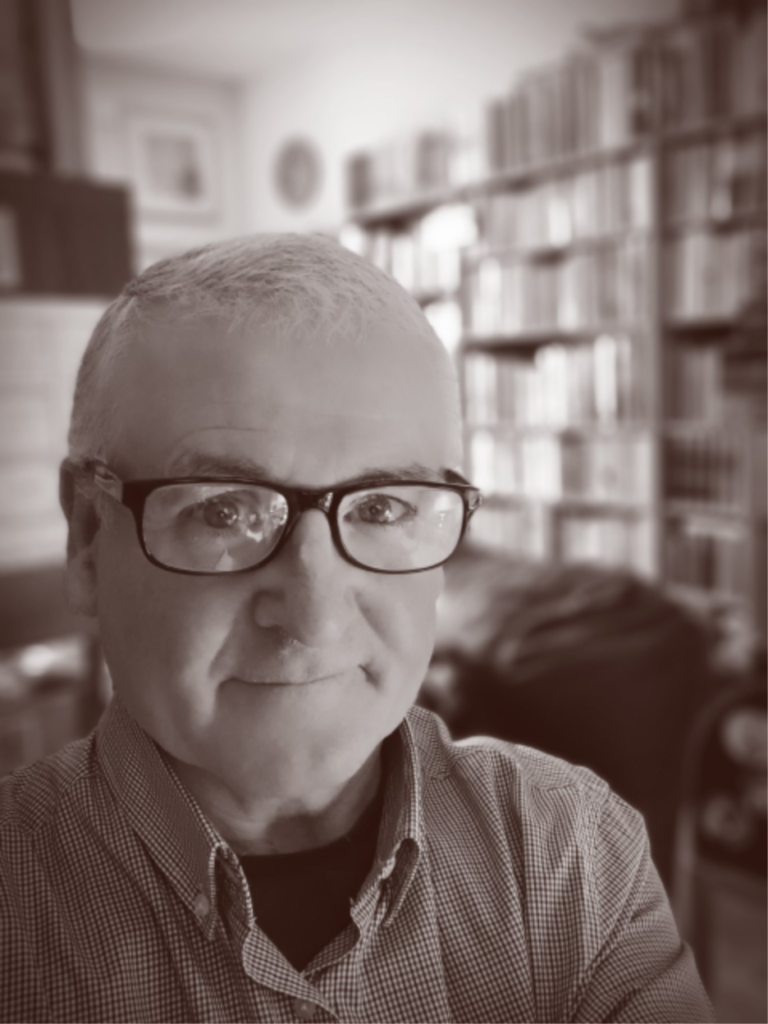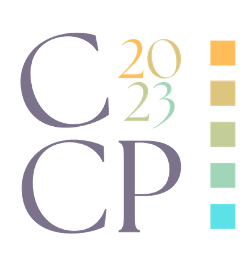
blame, exclusion, harm –
the effects of labels in welfare & psychiatry
harvey duke
I’d like us to consider a thought experiment, which may help to show how the labelling of human distress occurs in the welfare benefits system and in mental health services in Britain. I’ll focus mainly on welfare, but touch on the area of Psychiatry, where labels often decide what kind of help or welfare is offered. Imagine if the people of a city in Britain agreed to participate in a mass observation project. So, imagine that for the last dozen years or so, cameras were filming in doctors’ offices, benefits offices, job centres, and workplaces. A camera could be switched off if anyone did not want to be filmed. The point is, in this imaginary project, a vast store of human experience could be collated and studied. It could show what was said and decided. In witnessing poverty and its effects, and other social issues, what kinds of experience would we see when labels are applied to people in Welfare settings and within the field of mental health?
In the GP surgeries, it is inevitable that we would see patients asking for help because of the way they feel. Some might be exhausted from childcare or from some other work or from sleeplessness – for a huge variety of reasons. Some people may be traumatised from the experience of war, or domestic violence, or something so personal and sad that one woman in tears points to a project camera and asks for it to be switched off. We may see people who use the words ‘depressed’ or ‘anxious’ describe how they feel. Some may try to articulate where their feelings come from. A middle-aged man says: “If I could just get a decent sleep, I think I’d feel better. But my job…” And he tells the doctor about 10 hour shifts on a building site, and a bullying supervisor. His doctor nods and prescribes him antidepressants and sleeping tablets. The doctor says nothing about the patients’ life situation. The doctor also doesn’t need to hear the words ‘depressed’ or ‘anxious’ to decide that he is seeing the signs. It is a relatively simple case, so there’s no need to look anything up, or refer the man to a psychiatrist. The doctor knows he can leave the more complex cases to the psychiatrists, with their large tick box manuals: the Diagnostic and Statistical Manual or the International Classification of Diseases (the section dealing with ‘Mental and Behavioural Disorders’).
One point might become clearer if we observed hundreds of cases in a doctor’s office where some common mental health label was applied. We may notice how quickly a diagnosis of ‘depression’ or ‘anxiety’ is arrived at – after a few seconds, or a few minutes at most. And we may see how often, perhaps always, a doctor clicks his or her computer keyboard to print out a prescription for antidepressants. And this would echo exactly the statistics showing record levels for prescribing anti-depressants across Britain. [1]
In some of the imaginary project consultations, a patient would ask a doctor for a certificate, to prove to an employer that the person is ill. In one doctor’s office, if you watch carefully, you may see a government propaganda poster on the wall, called: ‘Advising patients about work’. It states: ‘Sickness certification is a major clinical intervention with potentially long-term consequences. The beneficial effects of work generally outweigh any risks of work.’ Unlike the imaginary doctor in this example, the poster is real. It is essentially urging the doctor against confirming that an absent or unemployed worker is too ill to work. [2]
In some areas of Britain, doctors have experimented with social prescribing. This means that in addition to medication, a patient may be referred to a support worker. Should our thought experiment be extended to this type of worker, most filmed conversations with patients would be longer, covering more ground in terms of human experience. The support worker might try to help the patient with their housing problems, or debts, or make a referral to a specialist dealing with gambling or drug abuse, alcoholism or help in finding a job. All these ways of helping the person are viewed, in the health service, as beneficial to patients, but peripheral to medicine. Social support is seen as good but not essential. As a result, millions of people will receive little or social support.
In Britain, a Welfare Rights Officer is a profession which is more specialised than that of support workers and in the former case, they are expected to have a high level of expertise in relation to welfare benefits and representing clients in legal tribunals. When I was a Welfare Rights Officer in Dundee, I worked some days in a doctor’s office, using one of the rooms where a doctor worked on other days. A few times, I had to correct my clients when they confused me with the doctor. Our project did however grow out of discussions which suggested – if a person’s money worries are lifted, mental health tends to improve. I often saw positive effects. A person would come to see me – shoulders hunched, looking down, face grey. After an hour of advice, the same person walked out looking greatly relieved. No longer under the threat of eviction, or having their electricity cut off, or not knowing how to survive after a benefit was cut. There was no need for me to label anyone.
Yet, for many people, of course, it is not so easy to walk out of problem situations. What if stress at work is not relieved by taking pills? What if a woman loses her job because she could not face going into work? Then, she may be forced to enter the benefits system and she will have to ask her doctor for a ‘fitness note’ – the job centre’s name for a sickness note, precisely the action the government propaganda poster urges doctors to be wary of. So, the woman needs a label such as ‘depression’ to apply for sickness-related benefits. Instantly, she becomes one of the mythical ‘benefits scroungers’ of thousands of tabloid newspaper stories. And her stigma and difficulties do not end there. In Britain, under the welfare reform regime, over the last dozen or so years, hundreds of thousands of people were denied benefits, despite having a medical diagnosis by a doctor or by a specialist. In the benefits system, several entirely different labels are applied, and they have nothing to do with physical or mental health. For example, if you apply for the sickness-related benefit: Employment and Support Allowance, you will be assessed in person and through tick-box forms as having ‘Limited Capability for Work’ (LCW) or ‘Limited Capability for Work Related Activity’ (LCWRA). If the decision maker decides these labels do not apply to you, you will not be paid benefits, and you will receive a letter saying you do not have LCW or LCWRA, or you have no LCW or LCWRA. I say more on this in an example below.
Let us return to the thought experiment and look at what we might see in a busy job centre, over the last dozen or so years. Long lines of people wait in grey offices to sign on for benefits. Each person is given a time to go to the job centre and sign on, sitting at a desk with an advisor. Each ‘job seeker’ or ‘claimant’ or ‘customer’ must prove that they are looking for work, and they must provide evidence they have written letters or emails to employers. If they cannot provide this evidence, they will face the terrifying prospect of sanctions: their benefits are stopped for weeks or months, and in a few cases for years. Victims of this regime are often vulnerable individuals. Sometimes, these people have literacy problems, or they may have undiagnosed mental health issues. [3]
Imagine a man, in his 50s, who has suffered from trauma since childhood, his face is covered in worry lines and his eyes have a permanent expression of shock and confusion. The job centre advisor, a kind young woman, is desperately trying not to sanction him for failing to look for a job. “I’m sorry”, he says. “I just, well I just forgot.” The advisor does not have time to think of a way to help him, because a hardline supervisor comes across and demands that the man is sanctioned. It has happened before, so this time the man is sanctioned for longer – for months. The man is shaking, and asks: “But what will I do? I don’t have any food.” He is handed a leaflet by the supervisor who says – the food bank is open, and the address is on the leaflet.
This is an imaginary or hypothetical scenario, but it is not unrealistic. As a Welfare Rights Officer I dealt with many similar cases, and they happened across Britain. The computerization of benefits like Universal Credit simply means that the same brutality happens at a distance, online. Benefits are denied. People are left with no income.
One label applied to the man in the above example would have been ‘non-compliant’. If the same man tried to get a sickness related benefit, he could easily be denied that too, because he does not have a diagnosed condition. So, he would be labelled with the long-winded terms adopted by the Department of Work and Pensions: ‘he does not have a Limited Capability for Work’ or ‘he does not have a Limited Capability for Work Related Activity.’ In terms of common, meaningful use of the English language, these are double negatives, but these are the actual terms used in legislation and in decision letters sent out to benefits claimants. It is important to recognise what this labelling means: no one is categorised as ill or well. A person who is in a coma, for example, is not referred to as ill, for benefit purposes, but as having ‘Limited Capability for Work Related Activity’. This is precisely the language agreed in the legislation. When the double negative labels are applied to the man in the above example, they lead to the same place – destitution, foodbanks, and worsening mental health.
Recall the poster on the doctor’s wall? It lists sources for the idea that certifying people as too ill to work is a bad thing for doctors to do. The sources include ‘The Scientific Basis of Incapacity Benefits’ by G Waddell and G Alyward (2005). It was this work and others which shaped thinking around benefit labels, and the same brutal ideas are also pushed for by companies like ATOS and the US-based medical insurance giant UNUM. Here, the parallel with false labelling in Psychiatry is uncanny. There is the role of private companies profiteering from human suffering, and there is the invention of categories which help business but harm millions of people who are labelled. UNUM was found guilty in America of deliberately failing to pay out on medical insurance. [4] It then advised the British government on how to deny millions of people benefits. The method was long-winded but essentially simple: arbitrary categories would decide who was deserving of help or not. [5]
More complex labels applied to people by psychiatrists, beyond the common ‘depression’ and ‘anxiety’, also lead to blame, exclusion, and harm. Again, people seeking help to survive or to feel better can become trapped in a system which pays little or no attention to any social causes of their distress. Instead, individuals are blamed for their own condition, and psychological distress is categorised within growing lists of mental illnesses, all of which are located in ‘the mind’ or in genes, without any clear evidence. It is not that there is no suffering, but that real suffering and social causes are ignored, in favour of tick box categories and drugs. Medication, enormously profitable for drugs companies, has become the primary form of treatment. The inadequacy and harmfulness of anti-depressants and anti-psychotic drugs is now well documented. As I was writing this Blog, I read the news that a leading GP medical publication is, for the first time, publishing advice for GPs on how to advise patients to taper off using anti-depressants. [6] This only came about because of years of tireless campaigning by activists, journalists, and critical-minded scientists.
There is a rich literature of examples about lives where harm has occurred because of the inability of psychiatry to recognise the social nature of psychological distress. Writers and investigators like Robert Whitaker, John Davies, and Joanna Moncrieff have explained how the vast edifice of Western pathologizing of mental distress was created and how it is maintained. Many articles and podcasts, for example the Mad in America website or its affiliates, detail lived experience and the scientific evidence which clearly explains the false nature of many psychiatric categories. Interestingly, there is evidence of lived experience across all social classes. One of the most powerful recent exposes concerned the life experience of a young woman at an English boarding school. [7] What I found fascinating about this example was – here was a situation, apparently far removed from the kind of poverty-related situations I am familiar with, and yet the mental harm caused sounds very similar, and the resulting witness testimony is so powerful that it would resonate with many people in apparently different circumstances. Understanding of the mental health damage done by harmful situations and false labels can arise in any human life. All such testimony should be valued.
My own experience of witnessing the harm done through false labels and brutal actions in the welfare system took its toll on my own mental health. I developed severe anxiety, an embarrassing twitch, and a strong urge to hide from the horrors I had seen. It took me over a year before I felt healed enough to be able to work again in a caring role. One of the sources of my healing, alongside love and care from other people and a cat, was – reading about Critical Psychiatry and the exposes of over prescribing of drugs, and also suggestions of much, much better ways to help people. The marvelous ‘Open Dialogue’ initiative in Finland captured my imagination, and I hope to find out more so I can campaign for something similar in Scotland. [8] If this is possible, I think it would need to go alongside a transformation of welfare benefits. The role of private companies and brutal benefit regimes has been a disaster for the mental health of millions of citizens. It is within Welfare and Psychiatry that false, harmful categorisations of human suffering have been allowed to create a ‘perfect storm’ in which many vulnerable people have become lost. Wherever we are in the world, it is always better to look out for the safety and care of anyone at risk of drowning.
References
[1] For antidepressant prescribing in England, click here. For Scotland, click here.
[2] A government propaganda poster aimed at doctors: click here.
[3] The effects of benefits sanctions: click here.
[4] An article from the Northwestern University Law Review concerning UNUM: click here.
[5] The UNUM memo to the UK government: click here.
[6] GPs advising on withdrawal from antidepressants: click here.
[7] A blogpost in Mad in America on boarding school: click here.
[8] Open dialogue in Finland: click here.

Harvey Duke is a writer based in Dundee, Scotland. A former Welfare Rights Officer, he campaigns for mental health and welfare systems that situate lived experience at their heart.

Leave a Reply